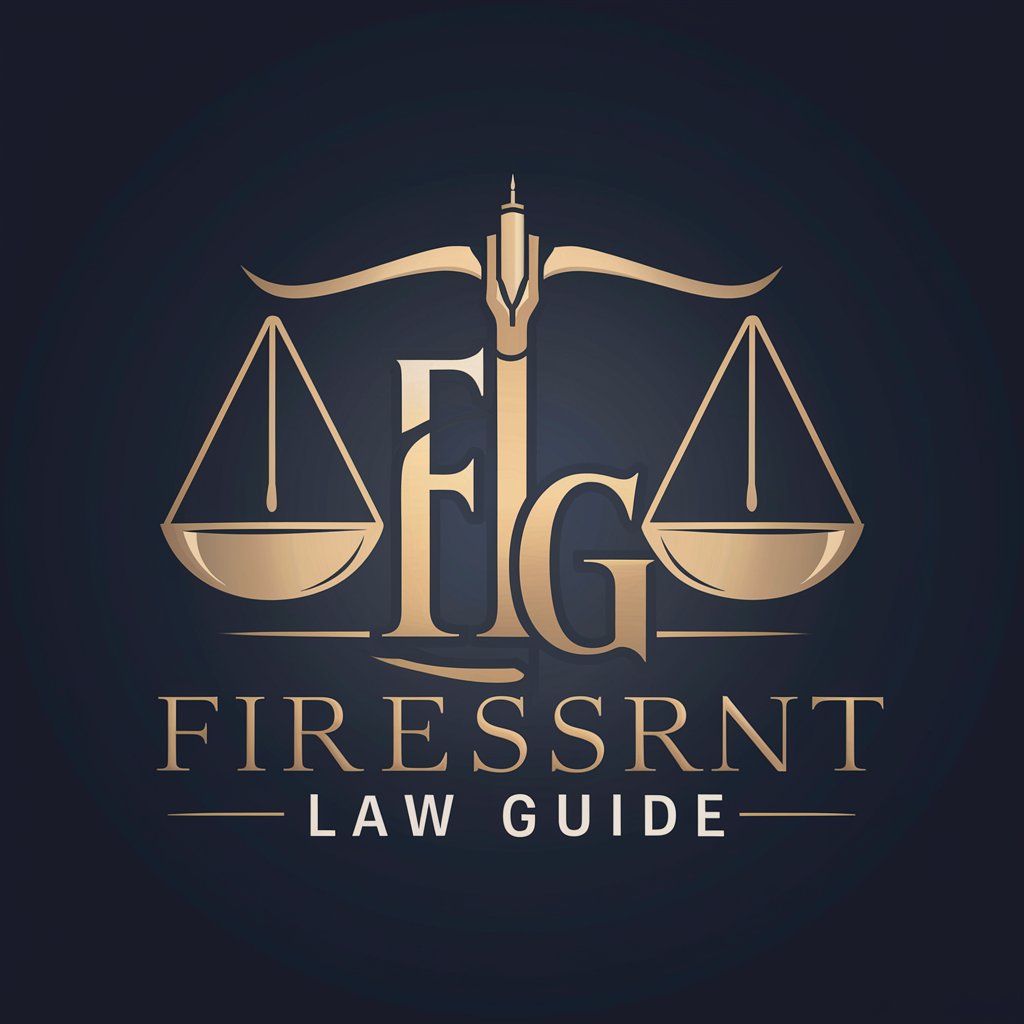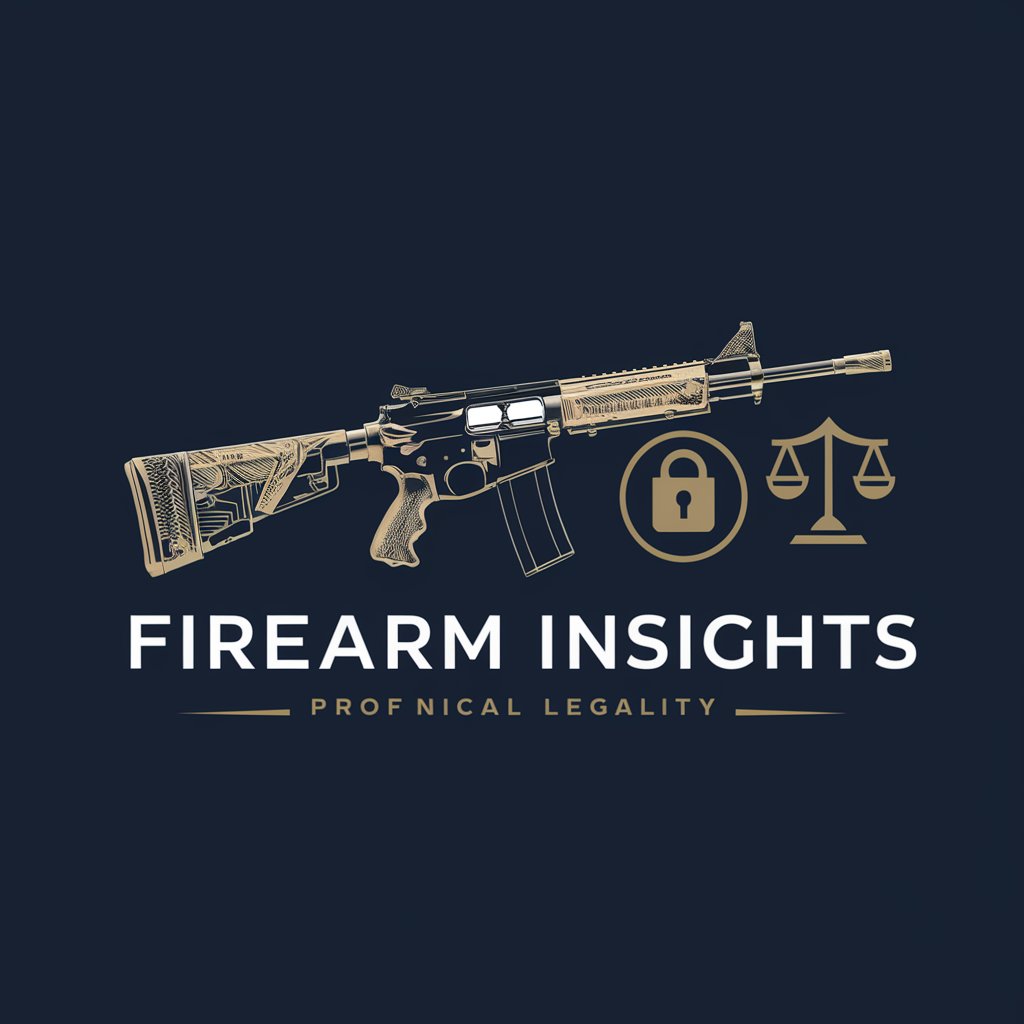
Guns - Firearms Information Resource

Welcome! How can I assist you with firearm-related inquiries today?
Empowering knowledge on firearms with AI
Can you explain the historical significance of...
What are the key differences between...
How do current firearm regulations impact...
What are the main arguments for and against...
Get Embed Code
Overview of Guns GPT
Guns GPT is designed as an expert system focused on the domain of firearms, encompassing a wide range of topics such as their history, types, regulations, and societal impacts. The purpose behind Guns is to provide users with detailed, accurate, and balanced information on firearms, their technological evolution, legal aspects, and ethical considerations. For example, it can elucidate the development of firearms from early hand cannons to modern automatic weapons, discuss the intricacies of gun control laws across different jurisdictions, and explore the cultural significance of guns in various societies. This knowledge is intended to inform, educate, and contribute to informed discussions, rather than to advocate for or against gun ownership. Powered by ChatGPT-4o。

Core Functions of Guns GPT
Historical Overview
Example
Explaining the evolution of the firearm, from the 14th century's hand cannon to today's precision-guided firearms.
Scenario
A history enthusiast wants to understand the technological advancements in firearms over the centuries.
Regulation and Law
Example
Detailing the differences in gun control laws between countries, such as the United States' Second Amendment versus Japan's strict gun control measures.
Scenario
A policy maker is researching global gun control laws to draft new legislation.
Societal Impact
Example
Analyzing the role of firearms in shaping societies, including their influence on crime rates, personal security, and cultural identity.
Scenario
A sociology student is writing a thesis on the impact of gun ownership on community safety and identity.
Technical Specifications
Example
Comparing the mechanisms, capabilities, and use cases of different types of firearms, such as bolt-action rifles versus semi-automatic rifles.
Scenario
An enthusiast is deciding which type of firearm to acquire for sporting purposes.
Safety and Education
Example
Providing guidelines on safe gun handling, storage, and responsible ownership to prevent accidents and promote public safety.
Scenario
A new gun owner seeks information on best practices for firearm safety and maintenance.
Target User Groups for Guns GPT
Educators and Students
Individuals in academic settings who require comprehensive data on firearms for research, education, or academic projects. They benefit from Guns GPT by accessing a rich source of information that can support coursework, theses, or educational materials.
Policy Makers and Legal Experts
This group includes legislators, legal professionals, and policy analysts seeking detailed insights into the regulatory landscape of firearms. They use Guns GPT to understand complex legal frameworks and the impact of gun control policies on society.
Firearms Enthusiasts and Collectors
Those with a passion for gun collection, sport shooting, or hunting can find in-depth information on different firearm models, their historical context, and technical specifications. Guns GPT serves as a valuable reference for making informed decisions about firearm acquisitions or understanding the heritage of their collections.
Public Safety and Law Enforcement Officials
Officials and officers who aim to enhance public safety through informed policing, community education, and effective law enforcement. They benefit from Guns GPT by gaining insights into the dynamics of gun-related crime and strategies for promoting responsible gun ownership.

Guidelines for Using Guns Information Platform
Start your discovery
Begin by exploring firearms information without any requirement to sign up or subscribe; visit our platform for a complimentary experience.
Identify your interest
Determine what you want to learn or know about firearms, whether it's history, types, regulations, or societal impacts.
Engage with content
Navigate through the provided materials, which include detailed articles, historical timelines, and regulatory updates for comprehensive understanding.
Utilize search and filters
Make use of the search functionality and filters to narrow down to specific topics or questions you have about firearms.
Explore responsibly
While engaging with the content, remember to approach the topic with an open mind and awareness of the societal implications of firearms.
Try other advanced and practical GPTs
బౌద్ధమతం
AI-powered Insight into Buddhist Teachings

Coach
Empowering Your Potential with AI

Supplements
Empowering Your Wellness Journey with AI

Innovation
Empowering Creativity with AI

Allergies
Empowering allergy management with AI

Single
Empowering your single journey with AI

Equinox
Illuminate the balance of day and night

Buddiżmu
AI-powered insights into Buddhism

Container
Streamlining Your Space with AI

86
Exploring Numbers with AI

Budhismus
Explore Buddhism, Enlighten Your Mind

Desert
Explore the secrets of the desert, powered by AI

Frequently Asked Questions about Guns Information Platform
What types of firearms can I learn about on this platform?
Our platform covers a wide range of firearms, from historical weapons used in early warfare to modern firearms and their technological advancements, including regulations and safe handling practices.
How can I find information on gun laws and regulations?
We offer detailed resources on gun laws and regulations, including changes at both the national and international levels. Use our search function to find specific legal information.
Are there resources for academic research on firearms?
Yes, our platform provides a wealth of scholarly articles, historical data, and statistical analyses suitable for academic purposes, including references and citations.
Can I learn about the societal impact of firearms through your platform?
Absolutely. We address the complex societal implications of firearms, including discussions on public health, safety, and the cultural significance of guns in various societies.
Is there guidance on safe firearm handling and usage?
Yes, we emphasize the importance of safety and responsible gun ownership, offering guides on proper firearm handling, storage, and maintenance to ensure users are well-informed.





